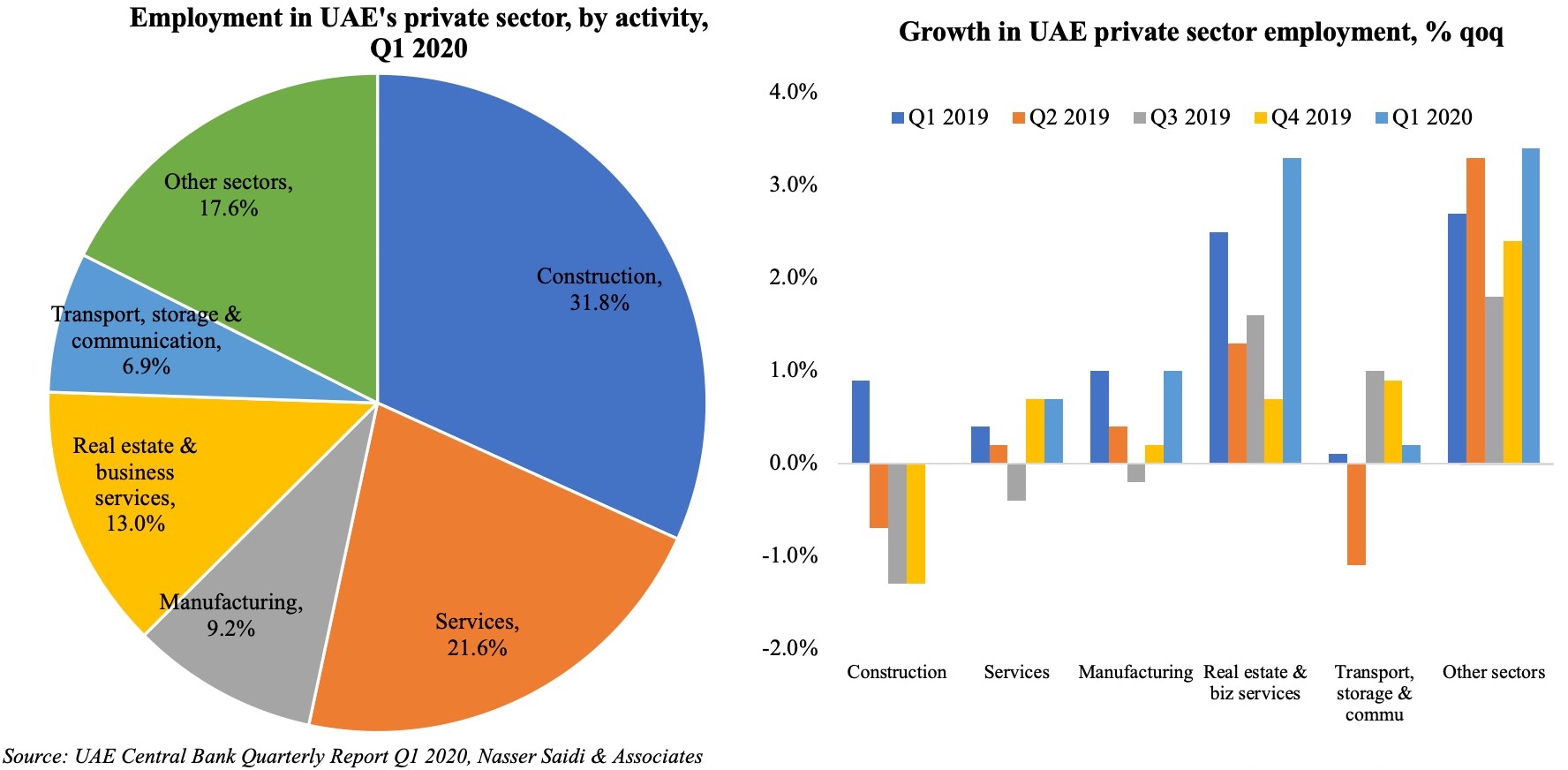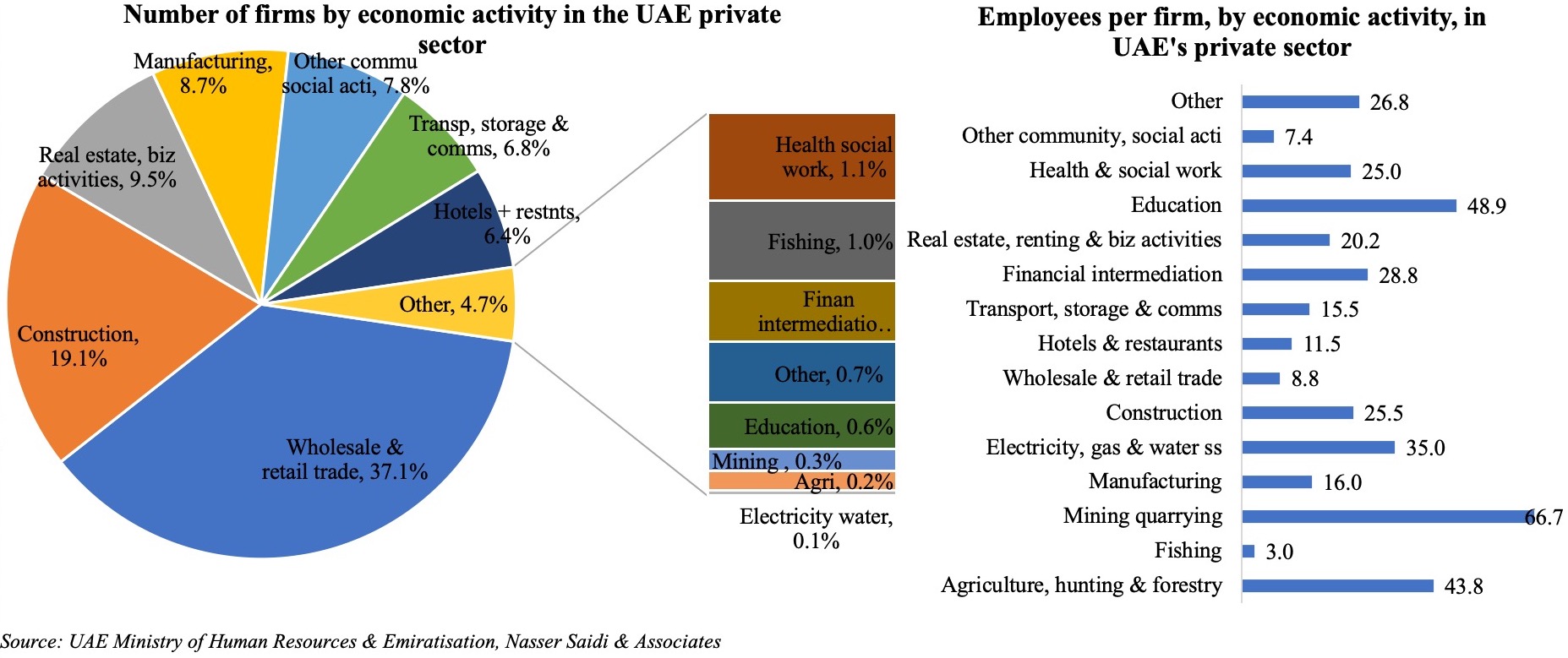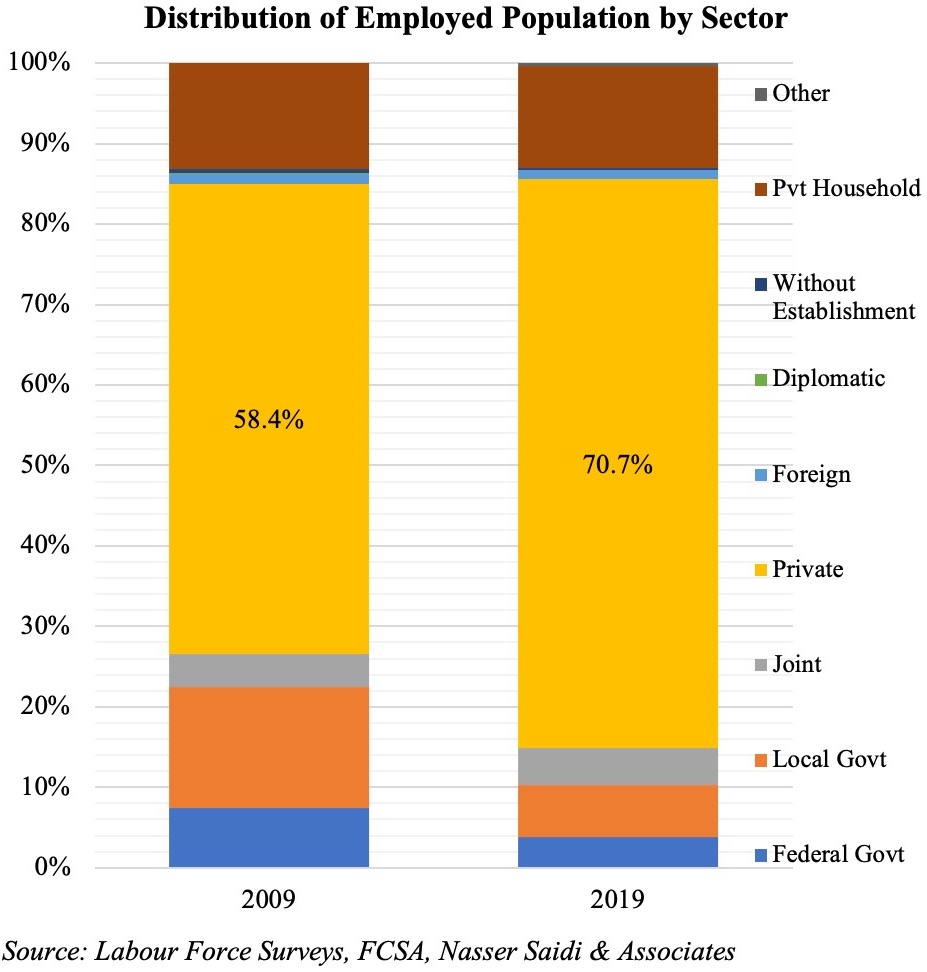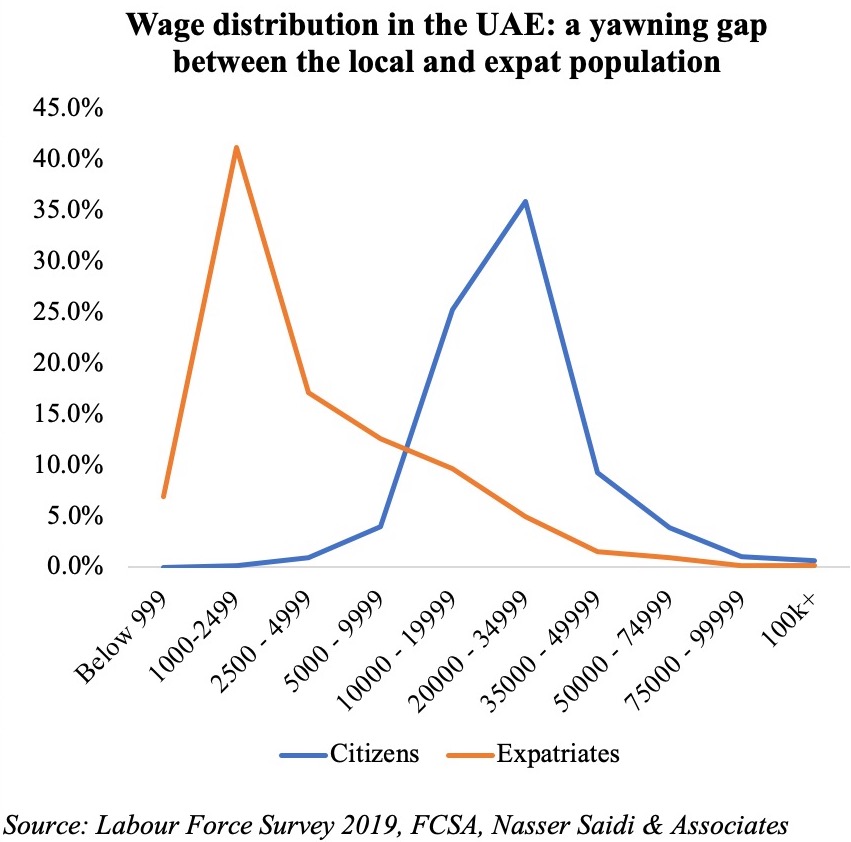Download a PDF copy of this week’s insight piece here.
Knowledge-based human capital to drive the next phase of UAE’s diversification efforts
The UAE this week announced an expansion of its current 10-year golden visa to include medical doctors, scientists and data experts as well as PhD holders, in a bid to attract professionals to the UAE. The liberalisation comes on the heels of visas for retirees and options for remote working in Dubai: these provide added incentives for expatriates to remain, invest and contribute further to the country’s development. Currently the UAE residential status for expatriates is linked to an employer, and in the event of job loss, the person has 30 days to either find a new job or secure a new visa. With the backdrop of Covid19 and related job losses – UAE’s PMI Employment sub-index fell to its lowest in over 11 years and the latest November reading falling for the 10th consecutive month – many long-term residents were forced to return to their home countries, taking their savings back with them generating capital outflows from the economy.
While UAE does not release monthly data on employment, the central bank’s quarterly report offers a glimpse into the recent trend. Construction and services were the largest sectors offering employment within the UAE’s private sector. This is an incomplete picture, as the database on private sector employment excludes the Free Zone activities. For example, the DIFC is home to 2584 firms and over 25k employees while the DMCC last reported 17.5k member companies in the free zone. In terms of pace of growth (in quarter-on-quarter terms), construction has been registering a decline since Q2 last year, though other sectors posted upticks in Q1 (prior to Covid19-related lockdowns). No data is yet available for that period, but Embassy estimates suggest 400k+ (net) and 60k persons having returned to India and Pakistan respectively during the past months.

Structural change signals the UAE’s greater economic diversification
The UAE Ministry of Human Resources and Emiratisation also offers additional details of number of establishments in the country (unfortunately, also excluding free zones). Close to 50% of the firms (as of Jan 2020) were operating in the sectors most affected by Covid19: an update of this data is likely to show a significant difference in the composition. Interestingly, if we consider the number of employees per firm, mining & quarrying (the oil sector) tops the list – in contrast to the capital-intensive nature of the sector.


As is oft-cited, there is a preference to work in the public sector: 78.2% of UAE citizens surveyed in the Labour Force Survey 2019[1] declared as working with either the federal or local government (versus just 12% in the private sector). However, comparing this data with the 2009 survey, the share of the private sector has increased from 58% to 70%- a positive move, and underscoring the UAE’s diversification efforts. By economic activity, a few sectors have seen an increase in their share: manufacturing (9.2% in 2019 vs 7.7% in 2009), construction (17.5% vs 12.3%), hotels and restaurants (5.4% vs 4%). Real estate sector has seen a significant drop during the decade, not unsurprising given the boom prior to 2010; but a slight dip in financial and insurance activities is surprising (2.5% in 2019 vs 3.2% in 2009).
Women are transforming the labour force: more educated but facing a glass ceiling
Another interesting insight from the Labour Force Survey offers a morale booster for women – women are relatively are more educated than their male counterparts (about 50% of employed local women have a bachelor’s degree, and about 60% have a bachelor’s and above; the comparable numbers for expat women are at 33% and 42.8% respectively); a high proportion of women work as professionals and managers (28.5% among female expats, 45% of female citizens). It is time that this translates into having more women on boards and at top management levels in the private sector[2].
 The Survey also confirms the disparity in wages between local and expat population: more than one-third of Emirati respondents disclosed receiving monthly wages between AED 20-35k (versus just 5% of expats in the same income bracket). This brings to the forefront two issues:
The Survey also confirms the disparity in wages between local and expat population: more than one-third of Emirati respondents disclosed receiving monthly wages between AED 20-35k (versus just 5% of expats in the same income bracket). This brings to the forefront two issues:
(a) Private-public sector wage gap that deters citizens from joining the private sector. Though wages by sector breakdown is not available (publicly), it is safe to assume relatively higher salaries in the government sector where close to three-fourths of citizens work. Public sector remains oversaturated, and with higher wages and relatively better benefits, highly educated young people prefer to remain unemployed till they get a public sector job – doing little to help the private sector.
(b) The need to attract high-skilled professionals to support private sector activity. This needs to be carefully addressed: while attracting foreign talent to take up such jobs in the near- to medium-term is necessary, it is critical to reform the education sector and invest in building a knowledge economy. There is a persistent skill mismatch and low educational quality in the country compared to market requirements. Though spending per capita is high and student-teacher ratios are comparable to OECD levels, the outcomes are not strong: the PISA 2018 scores, for example, reveal that UAE students are placed 50th in math, 49th in science, and 46th in reading. Radical modernisation of education curricula is essential for creating a 21st century able workforce. It is also time to invest in curricula that support job-readiness, ‘Digital Education-for-Digital Employment’, early exposure to the workplace (e.g. summer internships and labour policies that facilitate such changes), vocational and on-the-job training. Increasingly the focus should be to invest in and promote STEM (Science, Technology, Engineering and Mathematics) – especially given the official policy focus on innovation and a shift to the digital e-economy and -services in the UAE and the region.
What next? The recent structural reform moves (related to labour) will help remove distortions in the labour market, attract high-skilled professionals and help UAE to diversify into higher value-added and more complex economic activities, while also supporting domestic investment (including in the real estate sector). This will happen alongside a reduction in outflow of remittances, which in turn will boost the balance of payments: last year, UAE expatriates sent $44.9bn in outward remittances in 2019, comparable to the value of oil exports at $49.64bn[3]. It is important in this regard to accelerate capital market development: long-term residents will be keen to invest in medium- and long-term financial instruments, participate in a mortgage market and given an opportunity, also invest in startups and growth companies.
[1] This is published by the UAE’s Federal Competitiveness and Statistics Authority.
[2] A KPMG report on Female Leaders Outlook identified that 94% of CEOs that participated from the UAE were male. The 2019 UAE report includes input from 50 UAE-based women leaders, up from 29 in 2018.
[3] Data from OPEC’s Annual Statistics Bulletin.
Weekly Insights 19 Nov 2020: Knowledge-based human capital to drive UAE’s diversification efforts
19 November, 2020
Covid19 education employment government labour force PMI private sector public sector STEM UAE women
read 5 minutes
Read Next
publication
Weekly Insights 25 Jul 2024: GCC are adjusting to lower oil revenues
Dubai GDP & inflation. Saudi foreign trade. Kuwait 2023-24 fiscal deficit. GCC US Treasury holdings.
25 July, 2024
publication
Weekly Economic Commentary – Jul 22, 2024
Download a PDF copy of the weekly economic commentary here. Markets Major equities
22 July, 2024
publication
Weekly Insights 19 Jul 2024: MENA growth projections lowered by the IMF; GCC’s non-oil sector growth will stay robust
IMF growth downgrades. UAE monetary stats. Abu Dhabi GDP. Saudi consumer & wholesale price indices.
19 July, 2024






